Program Evaluation – A Dynamic and Growing Field
Program Evaluators serve the needs of leaders and decision makers in both public and private sectors, as they develop and implement policies and programs for human and social betterment.
In this time of accountability and careful spending, decision makers depend more than ever on the work and recommendations of well-trained program evaluators to shape decisions and outcomes. In the present climate, those who work as program evaluators will have increased opportunities to assume the role of collaborator and change agent in a variety of settings.
By using state-of-the-art research methodology and evaluation theory, the work of the evaluator enables decision makers to answer the ultimate question: “What works?”. The well-trained program evaluator knows what information needs to be collected, how to analyze and interpret empirical findings, and the best way to communicate data-based recommendations to clients or decision makers. Evaluation is a transdisciplinary profession, drawing on program theory, rhetoric, social sciences, quantitative and qualitative research methodology, and evaluation theory. Because evaluation activity crosses disciplines, the evaluator is able to provide a unique and informed perspective to guide social change and innovations. The actions and recommendations of a program evaluator often trigger and foster positive reform in policies and programs in government, schools, business, health, and social agencies both locally, nationally, and internationally.





